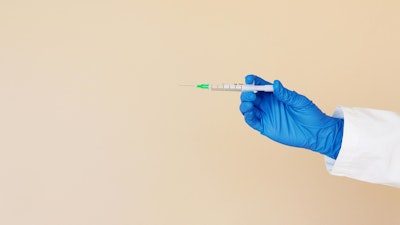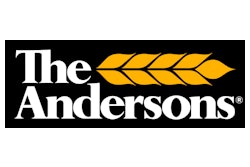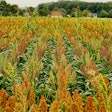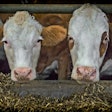
The World Health Organization (WHO) estimates an annual 4.95 million deaths related to antimicrobial resistance. Dr. Justin Tan, head of technical services at Kemin Animal Nutrition & Health ‘s Asia Pacific office, calls antibiotic resistance “one of mankind’s greatest health challenges,” noting that proper animal protein production strategies contribute to combating the issue.
Speaking recently at the Feed Strategy Seminar, Tan stated his confidence that antibiotic growth promoters (APGs) can be phased out only with a holistic approach that requires optimal farm management, diet and biosecurity. He lists these, as well as vaccination, good husbandry practices, and “good feed and water management to optimize nutrient use and control microbial proliferation.”
"In terms of disease prevention, this is one of the main reasons why APGs are used. They're used to cover up sub-optimal farming and husbandry conditions. ... When we actually grow our livestock in highly intensive conditions, there will be factors that lead to outbreaks of disease, especially when there are breaks in the biosecurity of the farm."
Additives, either through the feed itself or even in drinking water, are also a vital element to a holistic approach. Dr. Tan Yu Wen presented various additives, with many of them sufficing as antibiotic alternatives in the cases of growth promotion and prevention, but never for disease treatment.
This raises an interesting point about the transition into an antibiotic-free era in animal protein production: How will bacterial infection be treated? Ideally, this situation would be avoided altogether. The National Institutes of Health reports, without room for argument, that there are no viable alternatives to antibiotics in treating severe bacterial infections in animals. The Antibiotic Resistance Action Center stipulates that the resistance to antibodies can be slowed down by decreasing the use of medically important antibiotics, monitoring livestock use and increasing surveillance of data pertaining to resistance.
Transitioning to antimicrobial feed additives
Tan's presented research showed certain additives, such as prebiotics, immune modulators, bacteriophages and hydrolases (virus and enzyme that infect and break down bacteria cells) have some scientific evidence of success in disease treatment, particularly in pigs. While much research exists on alternatives in preventing illness, research on treatment of illness when antibiotics prove less effective is difficult to find.
 Dr. Justin Tan Yu Wen speaks about a holistic approach to antibiotic alternatives in livestock.Jackie Roembke
Dr. Justin Tan Yu Wen speaks about a holistic approach to antibiotic alternatives in livestock.Jackie Roembke
"There is no right solution and there is no antibiotic that (applies to) all husbandry conditions," Tan said.
WHO recommends that in the case of animals who have already contracted an infection, the animals in question should be tested to determine the most prudent antibiotics possible to treat their illness. Substituting antibiotics as much as possible with feed additives in the cases of growth and prevention, as well as treating infection with the appropriate antibiotics for their specific infection, appear to be a feasible way forward in managing antibiotic resistance in livestock.
"The challenges of pathogens are not only present due to poor nutrition, but they are coming (from a veterinarian perspective) from the feed, the drinking water, the environment, and even the air."
Tan recommends a holistic approach to making this transition, with special emphasis on a healthy environment for animals and proven additives to improve gut health. This makes it readily apparent that multiple elements of animal protein production need to be tweaked in order to slow down possible antibiotic resistances, which would likely prove fatal in treatment.
Editor's note: The 2024 edition of Health & Nutrition Asia was co-located with VICTAM Asia in Bangkok on March 12-14, 2024.


















